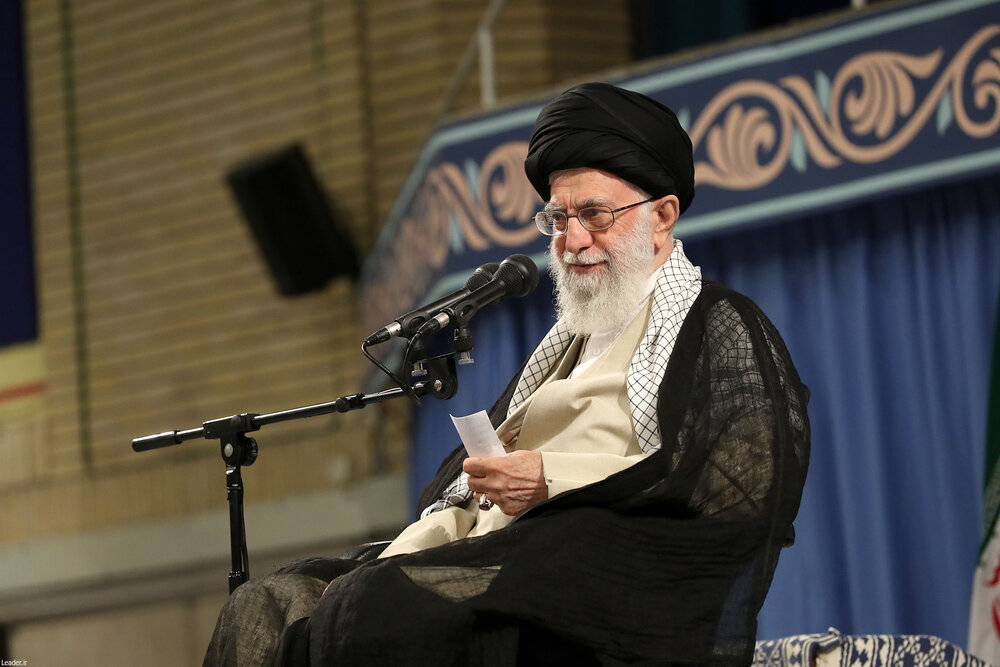Leader: Saudi Arabia tasked to provide security for Hajj pilgrims

TEHRAN - As the time for Abrahamic rituals of Hajj approaches, the time when Muslims visit Mecca to perform Hajj, officials of Iran’s Hajj and Pilgrimage Organization on Wednesday met with Leader of the Islamic Revolution Ayatollah Ali Khamenei.
During the meeting, the Leader said that Hajj is a political religious obligation, underlining the political duties of pilgrims during their pilgrimage.
A major mistake regarding Hajj is to advise against politicizing it, he underlined.
“Creating unity is a political matter. Supporting and defending the oppressed in the Islamic world, like the Palestinian and Yemeni nations, is a political matter, exactly based on Islamic teachings and an obligation,” the khamenei.ir quoted the Leader as saying.
“Hajj is a political act and this political act is identically a religious obligation. That they prohibit such political acts is itself a political move, but an anti-religious one. That they say you have no right to talk against America is a satanic political act.”
The Leader also highlighted Hajj as a manifestation of submission to and humbleness before God.
Hajj also has social aspects such as unity, brotherhood, harmony, as well as a display of unity and morality, Ayatollah Khamenei noted.
Elsewhere in his remarks, Ayatollah Khamenei said the Saudi government bears major responsibilities during the Hajj period. “Among their responsibilities is providing security for the pilgrims but they should not create a security atmosphere,” he said.
“While the pilgrims are in Mecca and Medina, they [the Saudi government] should treat them properly, respectfully, and with honor, because they are the guests of God.”
During a visit to Saudi Arabia in December 2018, Head of Iran’s Hajj and Pilgrimage Organization Alireza Rashidian held meetings with officials from the kingdom’s Ministry of Hajj and Umrah about the 2019 Hajj season.
The two sides signed an agreement at the conclusion of the meetings aimed at making better arrangements for Iranian pilgrims and preventing the problems they faced in previous years.
The agreement stipulates that 86,500 Iranian pilgrims would go on pilgrimage to Saudi Arabia in the coming Hajj season.
In 2016, more than 1.8 million pilgrims attended Hajj, but Iranians stayed at home after tensions between Riyadh and Tehran boiled over a deadly crush of people during the 2015 pilgrimage.
On September 2, 2015, thousands of people lost their lives in the deadly crush after Saudi authorities blocked a road in Mina during a ritual, forcing large crowds of pilgrims to collide.
The crush was the deadliest incident in the history of the pilgrimage. According to an Associated Press count based on official statements from the 36 countries that lost citizens in the disaster, more than 2,400 pilgrims were killed in the incident.
Saudi Arabia claims nearly 770 people were killed, but officials at Iran’s Hajj and Pilgrimage Organization say about 4,700 people, including over 460 Iranian pilgrims, lost their lives.
SP/PA
